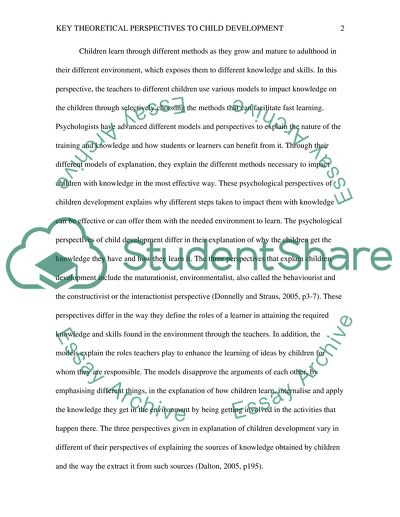Cite this document
(“Describe key theoretical perspectives to child development providing Essay”, n.d.)
Retrieved de https://studentshare.org/psychology/1480739-describe-key-theoretical-perspectives-to-child
Retrieved de https://studentshare.org/psychology/1480739-describe-key-theoretical-perspectives-to-child
(Describe Key Theoretical Perspectives to Child Development Providing Essay)
https://studentshare.org/psychology/1480739-describe-key-theoretical-perspectives-to-child.
https://studentshare.org/psychology/1480739-describe-key-theoretical-perspectives-to-child.
“Describe Key Theoretical Perspectives to Child Development Providing Essay”, n.d. https://studentshare.org/psychology/1480739-describe-key-theoretical-perspectives-to-child.


